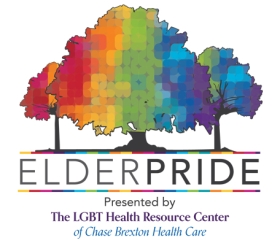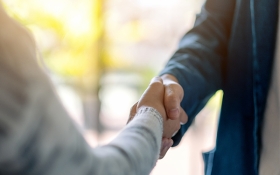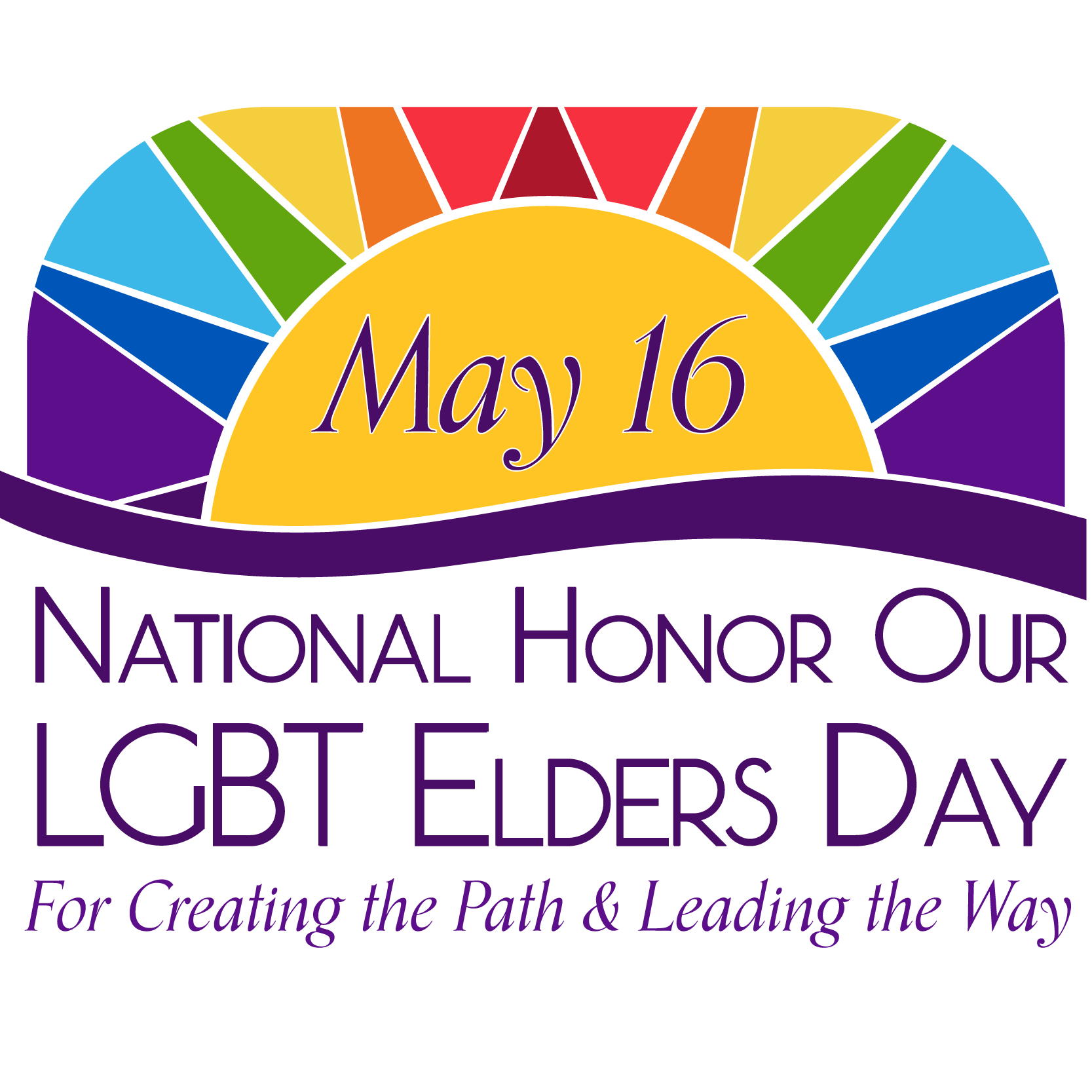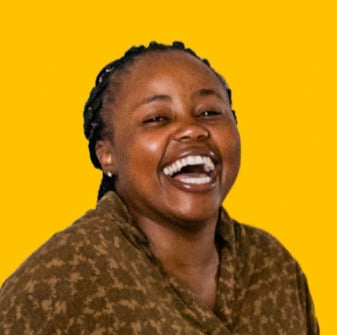Since its founding as a gay men’s health clinic in 1978, Chase Brexton Health Care has been a trailblazing leader in the LGBTQ rights movement. Today, The Center for LGBTQ Health Equity at Chase Brexton continues to lead the fight for LGBTQ health equity through our advocacy work at the community, state, and national levels.

ElderPride

Public Policy and Community Engagement

News and Publications
ElderPride
ElderPride from The Center for LGBTQ Health Equity offers education, resources, and groups for LGBTQ elders and their informal caregiving networks.
Welcoming and supporting individuals of all gender identities and sexual orientations, ElderPride provides:
- Counseling & behavioral health services
- Financial & legal connections
- Support groups
- Information & referrals
- LGBTQ Community Connection workshops each month
- Education, training, & technical assistance concerning the unique needs of LGBTQ Elders
LGBTQ Older Adults
Today, there are more than 3 million LGBTQ people aged 55 and older. Approximately:
- 1 in 3 lives alone
- 40 percent say their support networks have become smaller over time
- 40 percent have not told their health provider(s) their sexual orientation or gender identities.
Informal Caregivers
As many as 1 in 4 LGBTQ adults will become informal caregivers. Additionally, many LGBTQ older adults:
- Have strained/estranged relationships with their families of origin
- Have families of choice who are often not legally recognized
- Forgo health care and support due to both subtle and explicit forms of discrimination
- Serve as caregivers for another as they themselves are aging.
ElderPride is a program of The Center for LGBTQ Health Equity. The Center provides LGBTQ individuals and their families with welcoming access to expert health information and resources that will enhance wellness and quality of life.
To learn more, e-mail [email protected], or call 410-837-2050 x1049.
Whether it’s escorting someone to a medical appointment or making sure legal or financial paperwork is all in order, providing support for a loved one can sometimes feel overwhelming. LGBTQ individuals may face even greater challenges due to a lack of resources in the community, as well as laws and policies that put biological families first.
Why is informal caregiving an important part of LGBTQ aging?
- Many LGBTQ older adults have strained or estranged relationships with their families of origin
- Families of choice are not often legally recognized
- 1 in 4 LGBTQ adults will become an informal caregiver in their lifetime
- LGBTQ people often forgo health care/support due to subtle and explicit forms of discrimination
- Many LGBTQ people are caring for one another as they are aging themselves, intensifying the need for resources and support
We are all aging, and whether we're the caregiver now or will be the one in need of care, we can help you prepare for the future in ways that affirm and support you.
The Center for LGBTQ Health Equity offers programs and groups that can help educate LGBTQ individuals and their caregivers about common challenges they may face.
National Honor Our LGBT Elders Day
 Created by The Center for LGBTQ Health Equity in 2016, National Honor Our LGBT Elders Day* is a nationally recognized day to honor and thank those who came before us for creating the path and leading the way. Because of their fight, we are free to live our best lives. As part of the commemoration, we have created a host of tools to enable LGBTQ community members across the country to thank our elders for their dedication to equality, justice and tolerance.
Created by The Center for LGBTQ Health Equity in 2016, National Honor Our LGBT Elders Day* is a nationally recognized day to honor and thank those who came before us for creating the path and leading the way. Because of their fight, we are free to live our best lives. As part of the commemoration, we have created a host of tools to enable LGBTQ community members across the country to thank our elders for their dedication to equality, justice and tolerance.
*Why is it LGBT Elders Day and not LGBTQ Elders Day?
Historically, the word “queer” was used to marginalize and stigmatize those who stood at the forefront of the LGBTQ movement. For that reason, many of our elders feel disconnected from—and even traumatized by—that word. As The Center for LGBTQ Health Equity, we are working to take back that word and its meaning as a sign of empowerment and identity, while respecting the personal experiences and feelings of those who blazed the trail before us.
AARP of Maryland
Action in Maturity
Alzheimer’s Association of Maryland
Baltimore City Health Department
Benefits Data Trust/Maryland Benefits Center
Civic Works
Keswick Multi-Care Center
Levindale Hebrew Geriatric Center
Maryland Access Point
Maryland Caregivers Support Coordinating Council
Maryland Department of Aging
Maryland Legal Aid
Meals on Wheels of Central Maryland
Faith Communities of Pride
Free State Legal Project
Hearts and Ears
GLCCB (LGBT Community Center of Baltimore)
LGBT Older Adult Task Force of Howard County
Sistas of the T
Public Policy and Community Engagement
The Center for LGBTQ Health Equity works with lawmakers, influencers, and the public at large to help create the policies and cultural shifts that are necessary to end health disparities for LGBTQ patients.
Community Task Forces
Our experts regularly serve as the voice for LGBTQ patients in national, regional, and local community task forces dedicated to advancing public health and wellness. While we are honored to be called upon, one of our many goals is to help other LGBTQ representatives get a seat at the table.
- National Association of Community Health Centers, LGBTQ Task Force
- National Association of Community Health Centers, Primary Care Alliance
- SAGE HIV & Aging Coalition
- American Society on Aging, LGBT Aging Issues Network (LAIN)
Subject Matter Advisors
The Center for LGBTQ Health Equity provides subject matter expertise to lawmakers and advocates who are addressing public health concerns that directly impact the LGBTQ community, such as:
- Inclusion and equity
- Health care coverage
- LGBTQ Elders & Aging with HIV
- Population health management
- Preventive care
- Access to medications & medication management
- Lowering health care costs
- Transgender medical care
- HIV treatment and prevention
Community Pride Events
The Center for LGBTQ Health Equity is a major presence at all major Pride events throughout our region. These events enable us to raise awareness for LGBTQ health equity, erase stigma, and promote overall LGBTQ health and wellness to the public at large.

